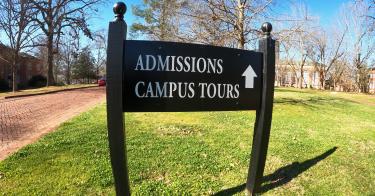College admissions officers who use racial preferences when approving applications are “minimizing the very nature of what we send our children to postsecondary education for,” says Stephen Gilchrist, a member of the U.S. Commission on Civil Rights.
“I’m concerned that we have a lot of academically gifted students in this country who need to be vetted based on their ability, regardless of quotas,” he told me last week.
Commission member Peter Kirsanow described Mr. Gilchrist, who is also chairman of the South Carolina African American Chamber of Commerce, as part of the cavalry that arrived in 2020 to restore sound judgment to a commission that had been dominated by leftists for nearly a decade.
A trustee for South Carolina’s public charter school district (a board on which I also serve), Mr. Gilchrist helps oversee many schools in low-income areas of the state.
Most Americans agree with Mr. Gilchrist’s opposition to racial preferences. According to a new poll, 62% of respondents said they do not think admissions officers should consider applicants’ race when selecting the next incoming class.
Yet college administrators have ignored arguments against racial preferences for decades. In fact, even if the Supreme Court issues a ruling in the spring against such racist actions in college admissions, it might not be enough to change universities’ policies.
Why would schools ignore the nation’s highest court, national civil rights leaders, and polling that likely includes opinions from the very parents who represent schools’ future customers?
Because school officials have infused racial bias into general school operations through so-called diversity, equity and inclusion offices and programs. This includes course offerings, staff and faculty training, and even the application process for university positions.
But that’s not all.
In order to admit students using federal loans to help pay schools’ pricey tuition, colleges must be accredited by one of a small number of accrediting associations. And who do those accreditors tap to conduct the actual reviews? The same college officials working under the DEI orthodoxy on university campuses, making the woke college-accreditation loop complete.
This explains why accrediting organizations showcase racially biased statements on their websites and include material aligned with critical race theory in their accreditation review documents.
For example, the Northwest Commission on Colleges and Universities lists a set of “anti-racism resources” on its website, including material produced by the Southern Poverty Law Center’s education arm, Learning for Justice.
The Western Association of Schools and Colleges’ Accrediting Commission for Junior Colleges has pledged to create a climate of “anti-racism” and select more reviewers based on race (with no mention of experience or skill).
The governing board of the University of North Carolina is testing accreditors’ vise grip with the announcement of a new department created to “explore American civic values with full freedom of expression,” according to the American Council of Trustees and Alumni.
>>> DEI Doesn’t Work—Taxpayers Shouldn’t Pay for It
The school’s accreditor, the Southern Association of Colleges and Schools Commission on Colleges, was not pleased with the announcement, and we are still waiting to hear why an attempt to promote free speech should threaten a school’s accreditation.
Later this year, the Supreme Court is expected to issue rulings in two cases challenging racial preferences in college admissions. One of the cases involves UNC. Accreditors such as the Middle States Commission on Higher Education have already written briefs in support of racial preferences.
The topic has the public’s attention, so state and federal lawmakers should use this moment to consider proposals that say schools no longer have to use government-sanctioned accreditors. Schools should be free to find accreditation with other organizations and businesses without the risk of losing federal student aid.
Mr. Gilchrist says race-based admissions policies “are doing more discriminating than they are helping.” Recent developments at UNC and the Supreme Court make the coming spring a good time for lawmakers to repair the broken accreditation system.
Woke accreditors’ protests against ending prejudicial admissions practices and against more free speech can only mean such reforms have merit.
This piece originally appeared in The Washington Times




